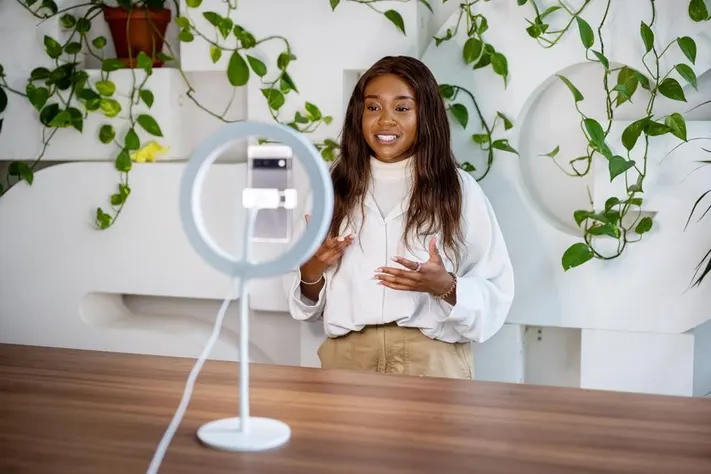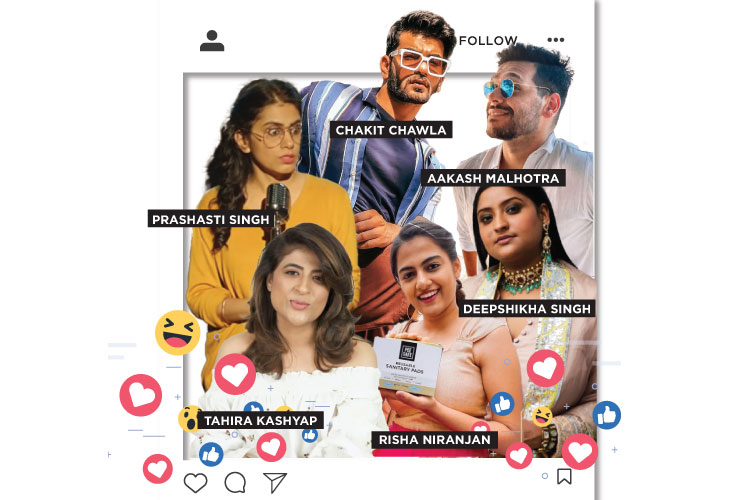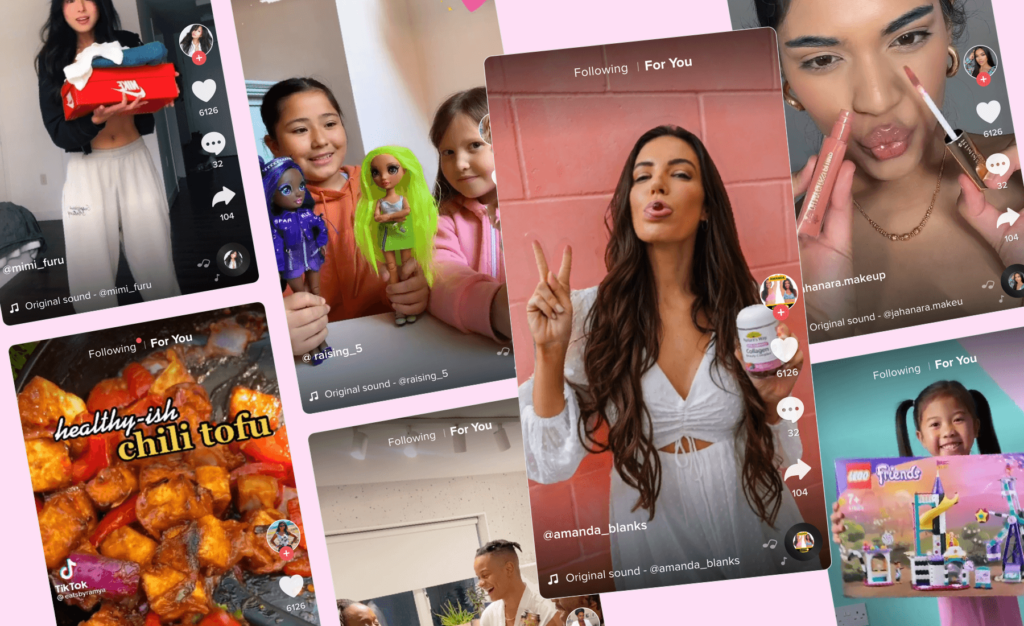
Introduction to Influencer Marketing
Influencer marketing has evolved into a powerhouse in the digital landscape, capturing the attention of brands and consumers alike. As social media platforms continue to grow and diversify, marketers are constantly seeking new strategies to connect with their audiences. The future of influencer marketing holds immense potential, filled with exciting innovations and trends that can shape brand partnerships for years to come.
From captivating micro-influencers who engage niche communities to cutting-edge virtual influencers powered by AI technology, there’s much on the horizon that promises to redefine how we see collaboration between brands and creators. Dive into this fast-paced world where authenticity is prized, data-driven decisions reign supreme, and creativity knows no bounds—a space where you can catch a glimpse of what lies ahead in influencer strategies. Let’s explore these pivotal trends shaping the future of influencer marketing together!
The Rise of Micro-Influencers
Micro-influencers are transforming the landscape of digital marketing. Unlike their celebrity counterparts, these influencers boast smaller but highly engaged audiences. Their follower counts typically range from 1,000 to 100,000.
Brands are recognizing that authenticity often trumps sheer numbers. Micro-influencers cultivate genuine connections with their followers. This fosters trust and loyalty that larger influencers may not achieve.
Their niche expertise allows for targeted campaigns tailored to specific demographics. This precision enhances the effectiveness of marketing strategies and ensures better engagement rates.
Additionally, collaborations with micro-influencers tend to be more cost-effective for brands, enabling them to stretch marketing budgets further while still achieving impressive results.
These rising stars in influencer marketing are reshaping brand partnerships and setting new trends for content creation across social media platforms.

Virtual Influencers and AI Technology
Virtual influencers are reshaping the landscape of social media marketing. These digital avatars, crafted using advanced AI technology, present a new frontier for brands looking to engage with audiences.
They can be designed to embody specific values or aesthetics, appealing directly to targeted demographics. This customization allows for tailored messaging that resonates deeply with consumers.
Moreover, virtual influencers operate without the limitations of human schedules or emotions. They’re always on-brand and can deliver consistent content at any time.
As AI continues to evolve, these influencers will become increasingly sophisticated in their interactions. Brands can leverage this technology not only for engagement but also data analysis—gaining insights into audience preferences like never before.
The blend of creativity and cutting-edge tech offers exciting possibilities. As more brands explore this avenue, we may see a significant shift in influencer strategies across various sectors.
Authenticity and Transparency in Influencer Marketing
Authenticity and transparency are becoming non-negotiable in influencer marketing. Today’s audiences crave genuine connections with brands, making it imperative for influencers to be real.
When influencers showcase their true selves, followers can relate more easily. This relatability fosters trust—an essential ingredient in successful social media marketing strategies. Brands that prioritize these values will likely see higher engagement rates and loyalty from consumers.
Transparency about partnerships is equally important. Clear disclosures about sponsored content help maintain credibility. Audiences appreciate knowing when they’re being marketed to; failure to disclose can lead to backlash and distrust.
As the digital landscape evolves, authenticity will drive brand partnerships forward. Influencers who embrace this mindset set a new standard in content creation, influencing how future campaigns unfold across platforms. The call for honesty is louder than ever, shaping the future of influencer trends dramatically.
The Impact of TikTok on Influencer Marketing
TikTok has revolutionized the landscape of influencer marketing. Its short-form video format captivates users, making content easily digestible and highly shareable. Influencers on this platform have found a unique way to connect with audiences through creativity and authenticity.
The algorithm promotes virality, allowing even accounts with smaller followings to gain significant traction overnight. This democratization of influence means brands can tap into niche markets effectively.
Trending challenges and sound bites create opportunities for innovative collaborations. Brands are now partnering with TikTok creators who align closely with their values rather than seeking traditional celebrities.
Engagement rates on TikTok often surpass those seen on other platforms. This thriving ecosystem encourages influencers to constantly adapt their strategies in response to audience preferences and trends that shift rapidly within the app’s vibrant community.

Niche and Diversity in Influencer Campaigns
Niche marketing is gaining momentum in influencer campaigns. Brands are recognizing the power of targeting specific audiences through specialized influencers. These niche creators often have loyal followings that trust their recommendations.
Diversity plays a crucial role in this evolution. Consumers today demand representation across gender, ethnicity, and interests. Influencers from various backgrounds can connect with broader groups, making campaigns feel more inclusive and authentic.
This focus on diversity fosters creativity and innovation in content creation. Brands can explore unique storytelling angles that resonate deeply with varied demographics. Collaborating with a diverse array of influencers enriches brand partnerships.
Marketers must adapt to these trends by developing tailored strategies that prioritize both niche appeal and inclusivity. This approach not only drives engagement but also cultivates community loyalty around shared values among followers and brands alike.
The Role of Data and Analytics in Influencer Marketing
Data and analytics have become the backbone of influencer marketing strategies. Brands now rely on insights to identify which influencers resonate best with their target audience.
Understanding engagement metrics is crucial. These numbers reveal how well an influencer connects with followers, guiding brands in selecting the right partners for campaigns.
Moreover, advanced tools track performance in real-time. This allows marketers to adjust strategies quickly based on what works and what doesn’t.
The rise of AI-driven analytics is another game-changer. It helps predict trends by analyzing vast amounts of data, providing brands with foresight into potential opportunities.
Additionally, measuring ROI has never been easier. With clear data points at hand, companies can assess the effectiveness of campaigns and refine future efforts accordingly.
In a landscape defined by rapid change, leveraging data ensures that influencer partnerships are not just creative but also strategic and informed decisions.
Challenges and Controversies Surrounding Influencer Marketing
Influencer marketing isn’t without its challenges. As brands increasingly rely on influencers to connect with audiences, the potential for misalignment grows. A mismatch in values or messaging can lead to backlash.
Controversies also arise over authenticity. Followers expect genuine content, but some influencers succumb to the lure of paid partnerships that feel forced or insincere. This may erode trust and engagement.
Moreover, regulatory issues are surfacing as governing bodies demand transparency in sponsored posts. Influencers must clearly disclose their affiliations or risk penalties.
The saturation of influencer content complicates matters further. With so many voices vying for attention, standing out has become a daunting task.
Ethical concerns linger around diversity and representation within influencer campaigns. Brands face scrutiny regarding inclusivity and who they choose as brand ambassadors, making these decisions more critical than ever in today’s social landscape.

Future Predictions for the Industry
The future of influencer marketing is brimming with potential. Brands will increasingly prioritize partnerships that align deeply with their values and messaging. Authenticity will remain at the forefront, guiding businesses to choose influencers who genuinely connect with their audience.
As technology advances, expect more integration of artificial intelligence in identifying and analyzing influencer effectiveness. This shift could lead to smarter campaigns that maximize engagement while minimizing waste.
Moreover, platforms like TikTok will continue shaping strategies. Short-form content’s popularity illustrates a need for creativity in storytelling within tight timeframes.
Micro-influencers are set to thrive as brands recognize the power of niche audiences over sheer follower counts. These influencers often cultivate loyal communities, enhancing trust and driving conversions.
Regulatory scrutiny on disclosures may rise, prompting brands to adopt stricter transparency practices. Navigating these changes creatively will be essential for staying ahead in this evolving landscape.
Conclusion
The landscape of influencer marketing is evolving rapidly. As brands look to harness the power of social media, they must stay ahead of emerging trends that will shape their strategies. The rise of micro-influencers offers a more authentic connection with niche audiences, while virtual influencers powered by AI are pushing creative boundaries.
Authenticity and transparency have become crucial in this new era. Audiences demand genuine interactions from those they follow, leading brands to prioritize real relationships over mere follower counts. Platforms like TikTok are revolutionizing how content is created and shared, giving rise to fresh influencers who thrive on creativity and engagement.
Diversity in campaigns allows brands to connect with a wider range of audiences across various demographics. By employing data analytics effectively, businesses can refine their influencer strategies for maximum impact. However, challenges remain—issues surrounding trust and ethical practices continue to spark debate among marketers.
As we look ahead at the future of influencer marketing, staying adaptable and innovative will be key for brands aiming to flourish in this dynamic environment. Engaging storytelling paired with strategic partnerships will allow companies not just to survive but thrive amid these changes in digital marketing landscapes. The next wave of influencer trends promises excitement and potential for both creators and brands alike as they navigate the ever-evolving social media terrain.
For more such content, keep visiting QAWire
